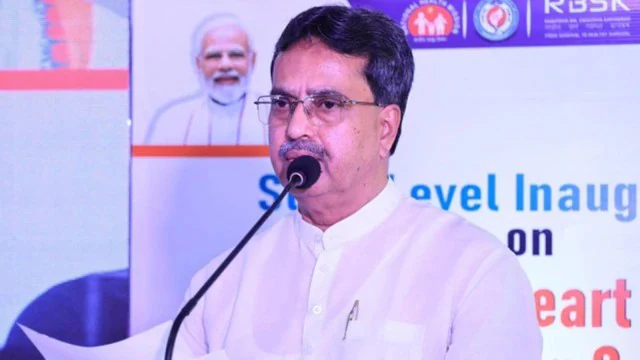Tripura Chief Minister Dr. Manik Saha has urged officials to transform the state’s panchayat system into a role model for the rest of the country. Emphasizing the pivotal role of grassroots governance in driving rural development, Saha called for a collaborative and transparent approach to empower local bodies, ensure accountability, and improve the delivery of essential services.
The CM’s appeal came during a high-level review meeting with senior officials and representatives from the state’s panchayati raj institutions (PRIs). His vision aligns with the broader objectives of strengthening rural governance and achieving sustainable development goals in Tripura’s villages.
Vision for a Model Panchayat System
Dr. Saha outlined a blueprint for making Tripura’s panchayat system exemplary. Key components include:
- Transparency and Accountability: Introducing robust mechanisms to track funds, projects, and performance metrics at the panchayat level.
- Citizen-Centric Governance: Encouraging greater public participation in planning and decision-making processes.
- Digitization of Services: Leveraging technology to streamline administrative processes, ensuring quick and efficient service delivery.
- Capacity Building: Organizing training programs for elected representatives and panchayat staff to enhance their skills and knowledge.
- Infrastructure Development: Prioritizing the construction of roads, drinking water facilities, and sanitation systems in rural areas.
The CM emphasized that an efficient panchayat system can significantly improve the quality of life for rural residents by addressing issues such as unemployment, healthcare, and education.
Focus on Welfare Schemes
During the meeting, Dr. Saha urged officials to ensure that central and state government welfare schemes reach the intended beneficiaries without delays or leakages. Key programs like:
- PM Awas Yojana (Gramin): Providing affordable housing for rural families.
- MGNREGA: Generating employment opportunities in villages.
- Swachh Bharat Mission (Gramin): Promoting cleanliness and sanitation.
These schemes were highlighted as tools to uplift rural communities and bridge the gap between urban and rural development. The CM instructed officials to regularly monitor and evaluate the implementation of these schemes at the panchayat level.
Strengthening Rural Economy
Another major focus of the discussion was the rural economy. Saha stressed the need to promote:
- Agriculture and Allied Activities: Supporting farmers through better irrigation facilities, modern equipment, and market linkages.
- Self-Help Groups (SHGs): Empowering women and marginalized groups to contribute to the local economy.
- Skill Development: Offering vocational training to youth to enhance their employability.
“The economic transformation of Tripura begins in its villages,” Saha remarked, reiterating his commitment to rural prosperity.
Challenges in Rural Governance
Despite the ambitious vision, officials acknowledged several challenges in achieving a model panchayat system, including:
- Resource Constraints: Limited funds and manpower in some panchayats hinder effective governance.
- Lack of Awareness: Many villagers remain unaware of their rights and the schemes available to them.
- Political Interference: Ensuring the autonomy of panchayats can be difficult due to local political dynamics.
- Connectivity Issues: Remote villages often lack proper infrastructure and communication facilities.
Dr. Saha called for a collective effort to overcome these challenges, urging all stakeholders to work in unison toward the shared goal of rural development.
Tripura’s Progress in Panchayati Raj
Tripura has been making steady progress in strengthening its panchayat system. Under previous administrations, the state achieved notable success in areas like literacy and healthcare. Dr. Saha aims to build on these achievements by integrating innovative strategies and fostering collaboration between the government and local communities.
Tripura’s commitment to decentralized governance is reflected in its active implementation of the 73rd Constitutional Amendment, which grants constitutional status to panchayati raj institutions. The state has consistently focused on empowering women and marginalized communities within the system.
The Road Ahead
Dr. Saha’s call to action comes at a time when Tripura is poised to scale new heights in rural development. By making its panchayat system a role model, the state can inspire others across the country to adopt best practices in grassroots governance.
The success of this vision, however, depends on sustained political will, active community participation, and the efficient execution of plans. If Tripura succeeds, it could set a precedent for how decentralized governance can transform rural India.
As Dr. Saha concluded, “A strong panchayat system is the backbone of rural development. Together, we can create a model that not only uplifts Tripura’s villages but also serves as an example for the nation.”




